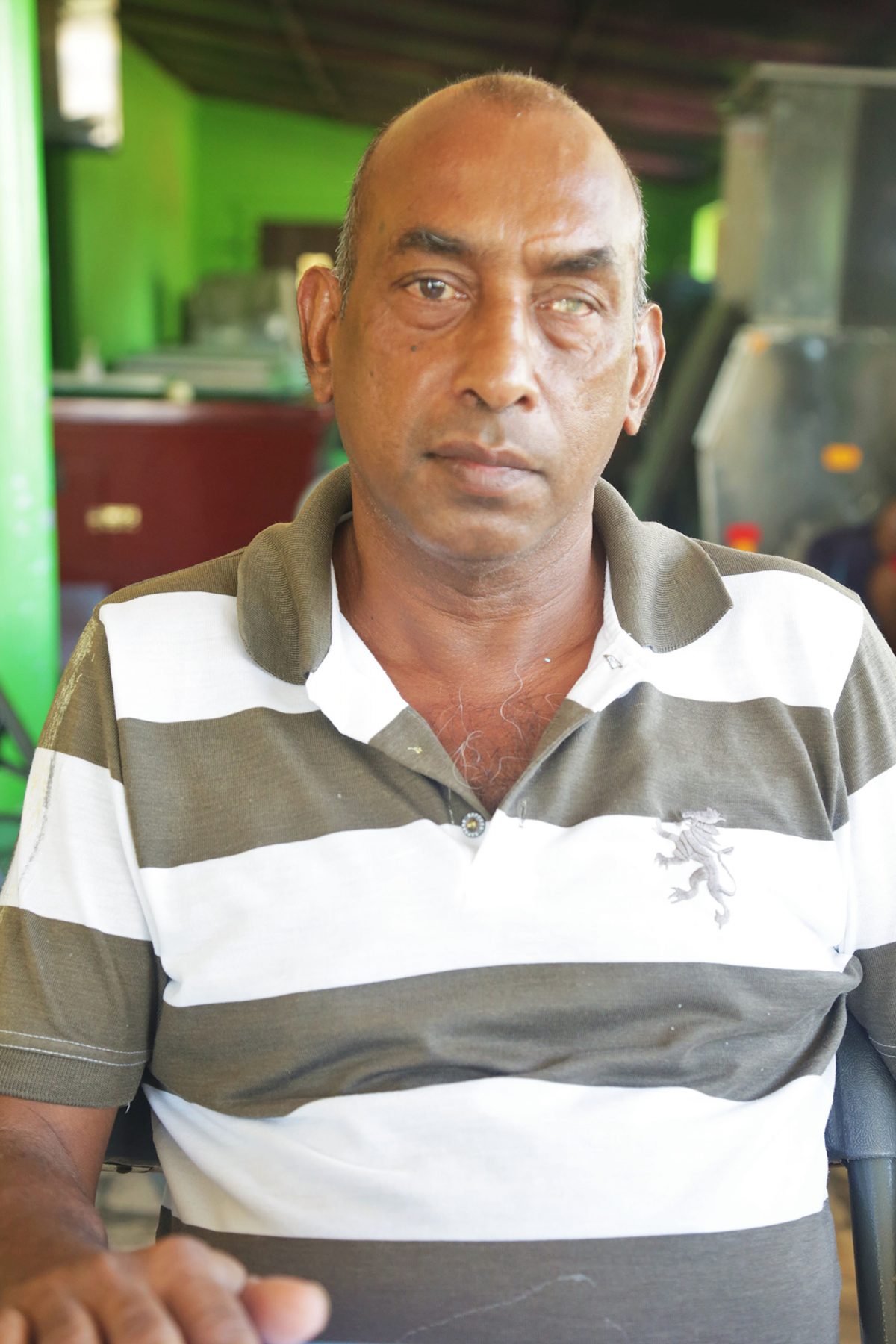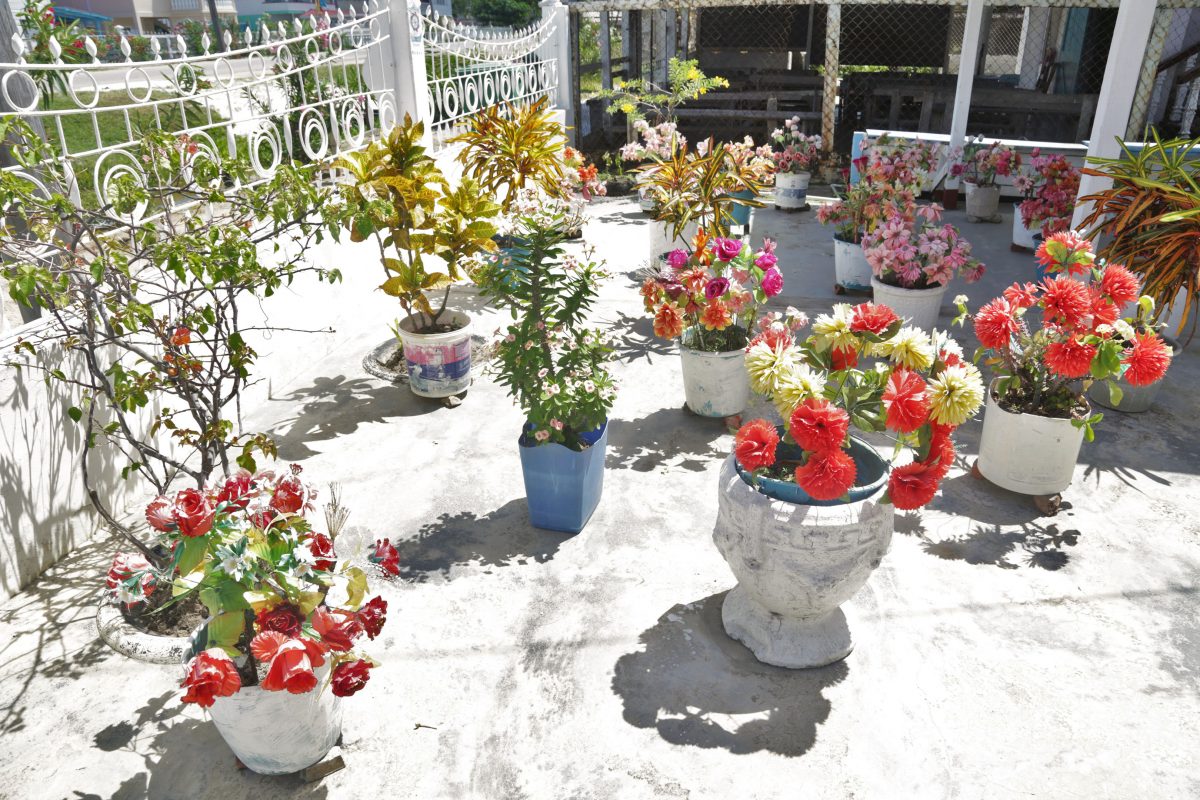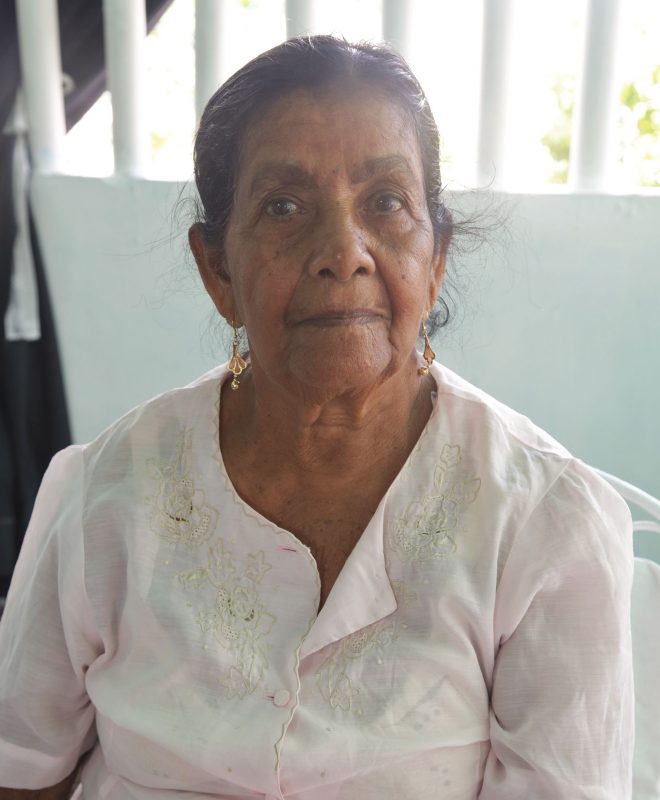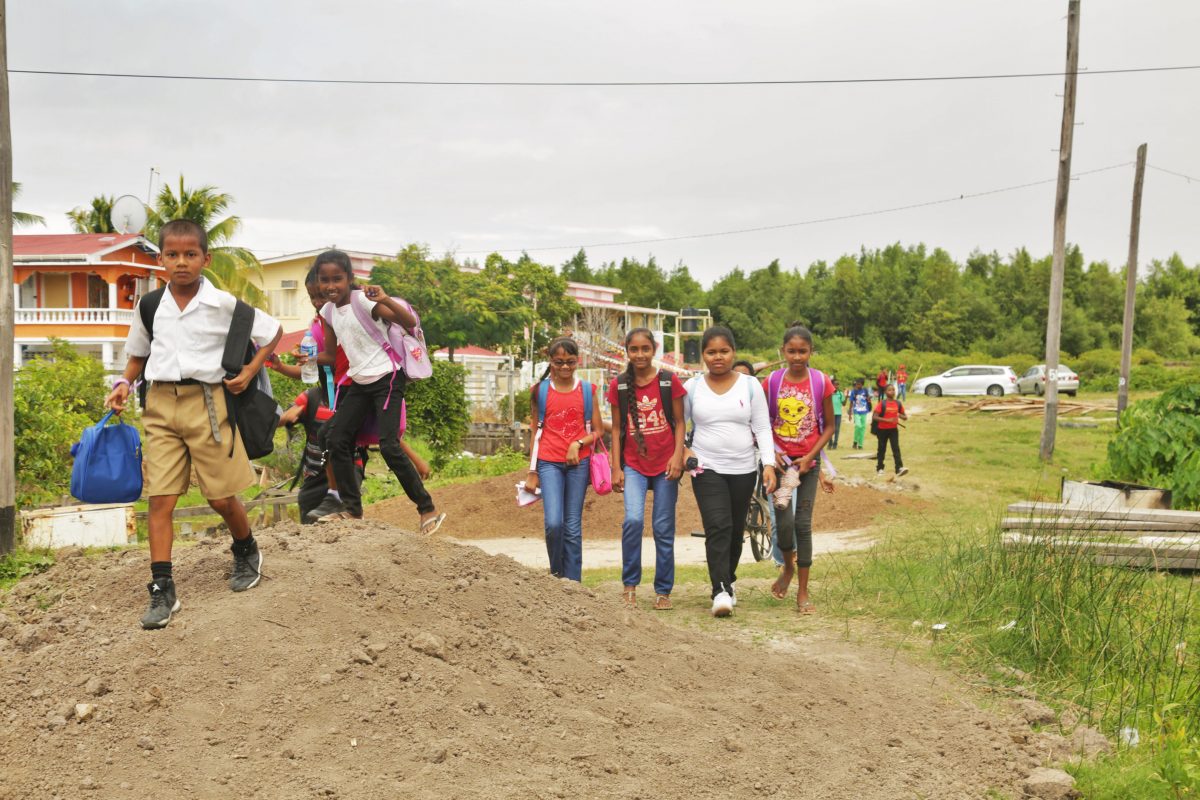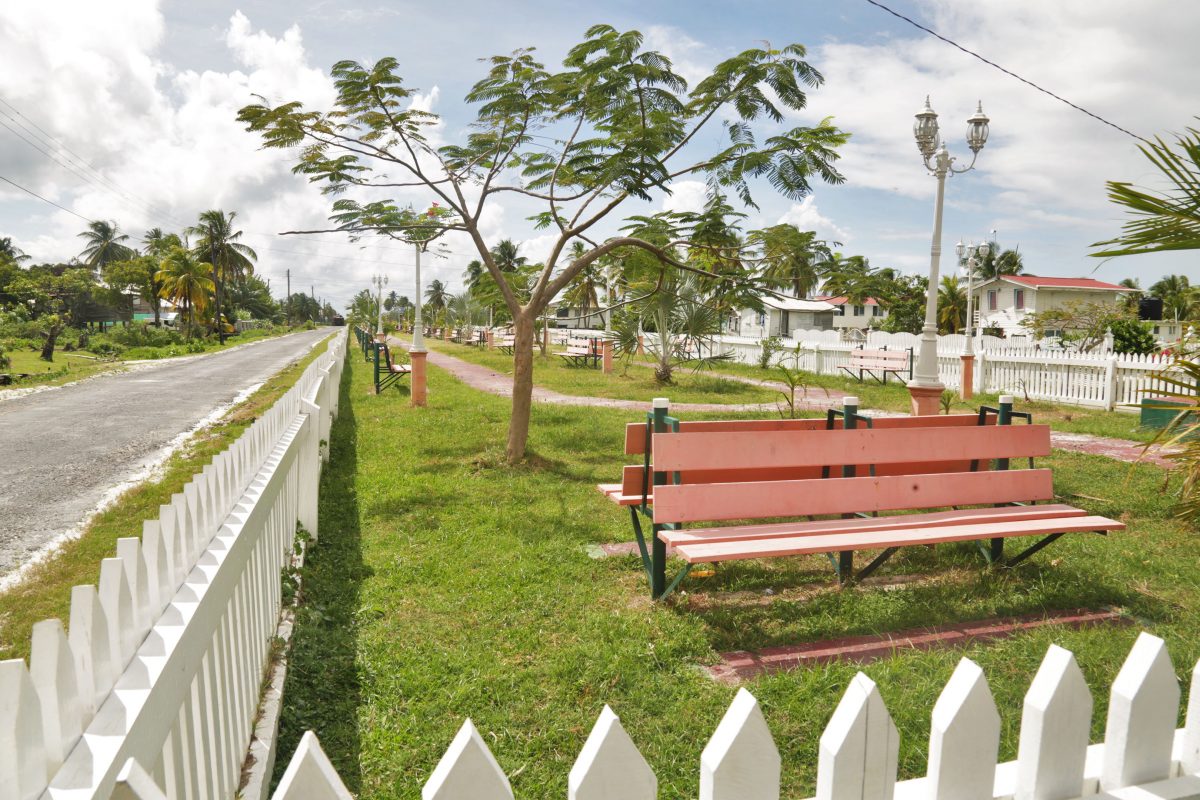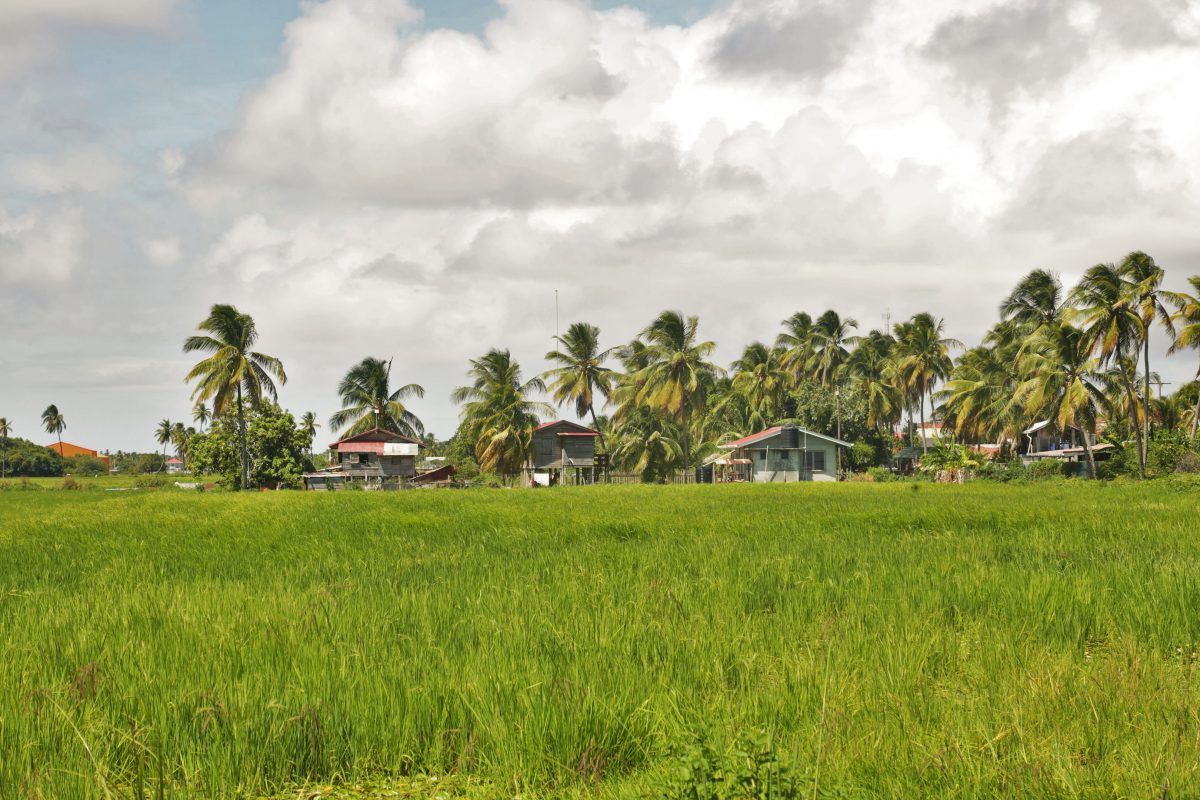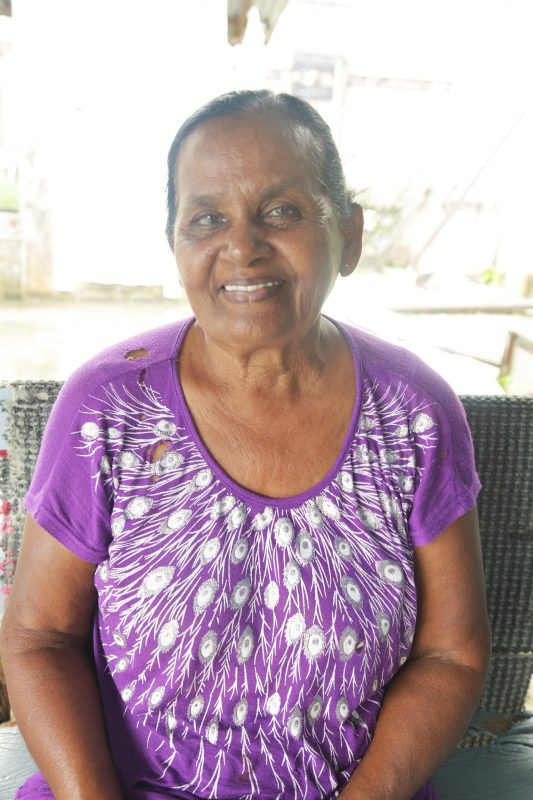On arriving at Sparta, the small Essequibo Coast village sandwiched by Danielstown and Windsor Castle, I noticed two signs—one with the name Sparta and another, several yards ahead, which read “Fear Not.” My initial thought was both names were used for the village, but my investigations revealed that though the Gazetteer of Guyana has Fear Not as the name of a place, it is actually the name of the canal before Sparta that runs along the rice fields.
A native of Sparta, Telackdhari Persaud shared that the village has been around for more than a century and noted that his parents are from the village as well as a grandparent. However, there was only a handful of families in the early 1900s.
“Sparta is a cool village, very quiet,” Persaud said. “Most people here do rice farming and fishing. I would say about ninety per cent of the people here are Hindus. We have a temple here in the village that we attend. It’s one of the biggest mandirs on the whole coast. There’s also a Christian church here, a school, and plenty shops. When I was small, the village had trash [troolie] houses then they start making wooden houses and then concrete houses.”
By the time he was a year old, the troolie house his family had was taken down and a wooden one put up, so he has no memories of it. Sparta Primary School was built in the 1970s, he said, so he and his siblings attended Danielstown Primary School. There were no nursery schools when he was a boy and secondary school was only for the fortunate ones, according to him.
Persaud, a shopkeeper, who has the only pool shop in the village is also a rice farmer. He tends to his farm in the mornings and runs his shop in the afternoon. Whenever he is in the backdam, his teen son takes care of the shop. His son, he said, finished school some time ago and has settled on helping him run the shop. Asked whether the young man was seeking employment elsewhere, Persaud said he was comfortable with what he was doing as it was just the two of them.
The Sparta resident is also the president for the community’s cricket club, a position he has held for the last 22 years. Club meetings are held at his residence. Persaud said that neither he nor his sons can play cricket, but he is concerned with keeping the youths in his village constructively occupied so that they will stay away from drugs and any other illegal activities. The Sparta Cricket Ground is situated in nearby Windsor Castle and because of this, the cricket club is named Sparwin Sports Club. A hardball 20/20 tournament is set to kick off soon on the Essequibo Coast, but because the ground was not cleaned in time, it did not make the list of cricket grounds hosting the different games. However, on Easter Monday the Village Day will be hosted at the ground and funds raised will go towards the cricket club.
Living in Sparta, the farmer noted, is convenient for him even though there is no medical facility; the Windsor Castle Health Centre is just a short walk away. In addition, the Anna Regina Market is seven villages away. It is an easy spin to the market if one needs something but for some their kitchen garden takes good care to keep them from having to step out of the village. The closest hospital is at Charity though persons prefer to go to Suddie as it is better equipped to deal with emergencies.
Eighty-nine-year-old Jagwantee Tulsiram, the oldest resident in Sparta, celebrated her birthday three Mondays ago. She is from San Souci, Wakenaam but many years ago, married a man from Hamburg Island known as ‘Tiger Island’. “Nobody living there now and at that time we had to move because the people them did want them rice land. Then we come hey and Ramsaroop Maraj was selling land and suh we buy land,” she told me. “All here was rice field; only couple family did living on the roadside. Thirty ah we buy together, from Sea Dam to Lamaha. We pay $80,000. After we buy, dem start to share so dem make number and dem put it in ah bag and you push yuh hand and whatever you collect, you get. We start to cultivate and suh.”
The woman said she worked in the backdam with her husband. While her husband went around with the bulls ploughing, she weeded and helped however she could. She recalled “setting the paddy” then four weeks later they would pull the small plants and replant them. Planting in the backdam, she said, was nothing new to her as she worked in the backdam as a little girl planting rice.
Her parents, Tulsiram said, died when she was little and she went to live with her aunt and uncle but working in the backdam was what the children of her days did, so it was not because she was orphaned that she had to do that kind of work as a child. She worked all her life and even today she still plants, not rice anymore, but plantain, ground provision, cash crops and flowers.
“Long ago everybody used to mind cow, dem sheep and goat and plant dem lil rice and dem lil kitchen garden,” she said. “This trench near by me, nobody bin can’t throw net and catch fish, or swim inside. If yuh want wash clothes, yuh got to dip the water and wash at the tank. That time had one standpipe out deh and at the end suh one more standpipe. The people who use to live on the other side where the standpipe was at, use to guh and get water from there. This water in this trench was black water and people used to use this water to drink. If yuh did want to bathe, you had to dip the water and carry it by the bathroom.”
Asked what it felt like to be 89, she chuckled, “You know, now like me feel tired, tired. Me wake up yesterday, me sweep and wipe upstairs and then me had to relax. Me can’t do plenty work like before. This morning me do the same thing, then pray at me altar, drink me tea and then abbe got to clean yard and suh. Me ah mek me tea and dinner.”
Tulsiram has tenants and they are her company. She has diabetes, hypertension and high cholesterol and visits the clinic at the Windsor Castle Health Centre as often as required.
Through a dam leading to the Sparta Primary School, children were filing out in their best casual wear, as they were earlier that day involved in Mashramani activities. They hopped over mini drains and climbed over a mud pile along a dam they often use as a shortcut to the school. They could not use the other road through Danielstown that leads to the school as infrastructure work was being done there.
Yvonne Raymond sat with me under her shed as the rain had started pouring. The widow, whose husband passed away just last year, moved to Sparta with her late husband decades ago. She was from Three Friends Village and he was from neighbouring Danielstown.
She lives in the same yard with her son and his family but in separate house. Her son plants cash crops which he sells. He provides his mother with whatever vegetables she needs.
The woman pointed out the street that was being fixed in the nearby village saying that there were many times that the particular street was fixed but the dam in front of her where the school children walk was never done.
Her section of Sparta floods when it rains and sometimes, she has to put a board across two tyres before she can make it to her bed. Her wooden house sits flat on the ground. Her walls shone brightly as if they had just been scrubbed, but Raymond said she had not yet started cleaning them, but intended to finish scrubbing them in time for tomorrow’s Phagwah holiday, though she did not plan on celebrating because of the death of her husband.
Life in Sparta, she said, was quiet and since the loss of her companion it has become quieter, but she is grateful to have family around especially her grandchildren. She is never in want of anything; and that is all she will ever need, she said.
